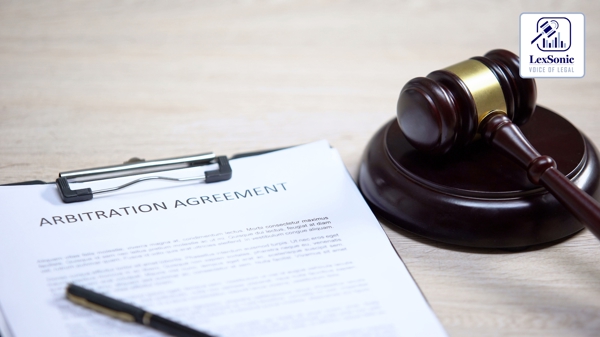Court Appoints Sole Arbitrator in Kirloskar Pneumatic-Kataria Sales Dispute After Initial Award Set Aside.
21 March 2024
Arbitration Law >> Business & Commercial Law
The Kirloskar Pneumatic Company Ltd. (Petitioner) has filed an arbitration petition seeking the appointment of a Sole Arbitrator to resolve a dispute with Kataria Sales Corporation (Respondent), arising out of their Dealership Agreement dated June 19, 2013. The Petitioner, engaged in the business of manufacturing and selling air and gas compressors, entered into a dealership agreement with the Respondent, which also operates in a similar line of business. However, differences emerged when the Respondent placed purchase orders with the Petitioner, but subsequently refused to pay the amounts due under the invoices.
The Petitioner raised an invoice for Rs. 14,86,932 on March 27, 2015, but the Respondent failed to make the full payment. After a year-long exchange of emails between the parties, no resolution was reached. The Petitioner issued a second invoice for Rs. 6,18,879 for another purchase order, but only a part payment was made, with the remaining balance still unpaid.
Initial Arbitration Proceedings:
In light of the ongoing dispute, the Petitioner invoked the arbitration clause of the Dealership Agreement on October 30, 2018, appointing Advocate Anurag Jain as the Sole Arbitrator. On November 23, 2020, the Sole Arbitrator passed an award in favor of Kirloskar Pneumatic, directing Kataria Sales to pay an amount of Rs. 29,90,524, along with interest and costs.
Challenge to the Arbitration Award:
However, the arbitral award was challenged by the Respondent before the District Court in Pune. The District Court, in its judgment dated January 7, 2023, set aside the arbitral award on the grounds that the Sole Arbitrator had been appointed unilaterally by the Petitioner, which was deemed contrary to the ruling of the Supreme Court in the case of Perkins Eastman Architects DPC & Anr. vs. HSCC (India) Ltd. (2020) and TRF Ltd. vs. Energo Engineering Projects Ltd. (2017). These decisions held that a unilateral appointment of an arbitrator is not permissible, as it raises concerns over the impartiality and independence of the arbitrator.

Current Application for Appointment of Arbitrator:
In light of the District Court’s decision, the Petitioner filed a fresh application before the court, seeking the appointment of a Sole Arbitrator under Section 11 of the Arbitration and Conciliation Act, 1996, to adjudicate the disputes between the parties. The Petitioner argued that despite the earlier proceedings being set aside, the disputes remained unresolved and could only be properly settled through arbitration, in accordance with the agreement between the parties.
Objections Raised by the Respondent:
The Respondent, represented by Adv. Dormaan Dalal, raised a preliminary objection to the maintainability of the petition, arguing that the Petitioner’s application was “premature”. According to the Respondent’s counsel, the petition filed under Section 11(6) should not be entertained unless the arbitration clause had been invoked as per Section 21 of the Act, which stipulates that the dispute arises when one party formally requests the other party to refer the dispute to arbitration. Mr. Dalal cited various legal precedents, including the BSNL vs. Nortel Networks (India) Pvt. Ltd. (2021) case, to support his argument that an application under Section 11 can only be filed after a failure to make an appointment of an arbitrator within 30 days of issuing the invocation notice.
However, the Petitioner’s counsel contended that the arbitration proceedings had already commenced with the issuance of the arbitration notice in October 2018, and the failure to appoint a competent arbitrator did not necessitate a fresh invocation of the arbitration clause under Section 21.
Court’s Decision:
The court considered the scheme of the Arbitration and Conciliation Act, 1996, and the procedure for the appointment of an arbitrator under Section 11(6), which allows the court to step in when the parties fail to appoint an arbitrator in accordance with the procedure agreed upon by them. The court found that, although the initial arbitrator was appointed unilaterally by the Petitioner, the arbitration proceedings had already been initiated with the notice issued by the Petitioner. Therefore, the court rejected the Respondent’s argument that a fresh invocation notice was required and decided to proceed with the appointment of a Sole Arbitrator.
The court exercised its powers under Section 11(6) of the Act and appointed Mr. Jayprakash Shridhar Kapare, a retired District Judge, as the Sole Arbitrator to adjudicate the dispute between the parties. The arbitrator was directed to issue a statement of disclosure, as required under Section 12 of the Act, before entering the reference.
Conclusion:
The court’s decision underscores the importance of following the proper procedure for the appointment of an arbitrator, especially in cases where the initial appointment may be challenged on grounds of impartiality. The ruling also highlights that once arbitration proceedings have been triggered, a fresh invocation notice may not be necessary for the appointment of a new arbitrator, particularly where the dispute remains unresolved.
